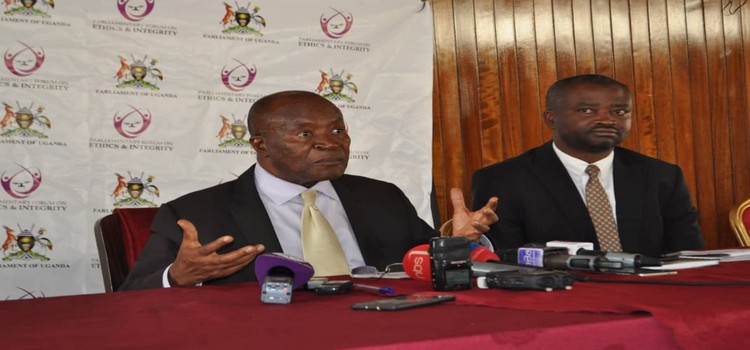MPs support President’s rejection of GMO Bill

Members of Parliament on the Parliamentary Forum on Ethics and Integrity have disparaged the Genetic Engineering Regulatory Bill, 2018 that is scheduled to be returned to the Floor of the House for debate.
In August 2019, President Yoweri Museveni for the second time, declined to assent to the Bill, previously known as the National Biotechnology and Biosafety Bill, 2012.
The Bill was first rejected by the President in 2017 after he raised 12 issues that required improvement including benefit-sharing between the breeder, inventor and indigenous communities, the scope of the law, isolation measures, use of poisons and dangerous enzymes and bacteria among others.
The MPs led by forum chairperson, Hon. Nsaba Buturo (NRM, Bufumbira County East) observed that many aspects of the Bill would disenfranchise Ugandan farmers, owing to the fact that there's no ready market for genetically modified crops.
"We want to move to the next step of banning GMOs because they are not going to be in our interests, but rather a danger to our integrity, sovereignty, health of the people and the economy," said Nsaba Buturo.
Nsaba Buturo made the remarks during press conference held in Parliament on Monday, 4 November 2019, speaking on the demerits of approving a law to legalise production and sale of genetically modified seeds and crops.
He added that it was prudent for the Government of Uganda to increase budgeting to the agriculture sector to improve the quality of crops planted, which would stow away the need for genetically enhanced crops that are resistant to disease and harsh weather conditions.
"We want to urge you to support us to ensure that Government increases the budget share for agriculture and invest more in irrigation, good seeds, credit facilities, road infrastructure, research and extension services among others," Nsaba Buturo added.
Kumi Municipality MP, Hon. Silas Aogon, said the President's decline to assent to the Bill was a sign that there were many unanswered questions and would be of no benefit to the country in its current form.
"There are so many laws and regulations but when it comes to adherence, it becomes a problem. We cannot manage GMOs by regulating, all we need to do us have a total ban," reiterated Aogon.
He also observed that through promoting GMOs, some 'individuals' were trying to take advantage of parliaments around the world to legalise genetically enhanced crops, something which he termed as 'new age neo-colonialism'.
